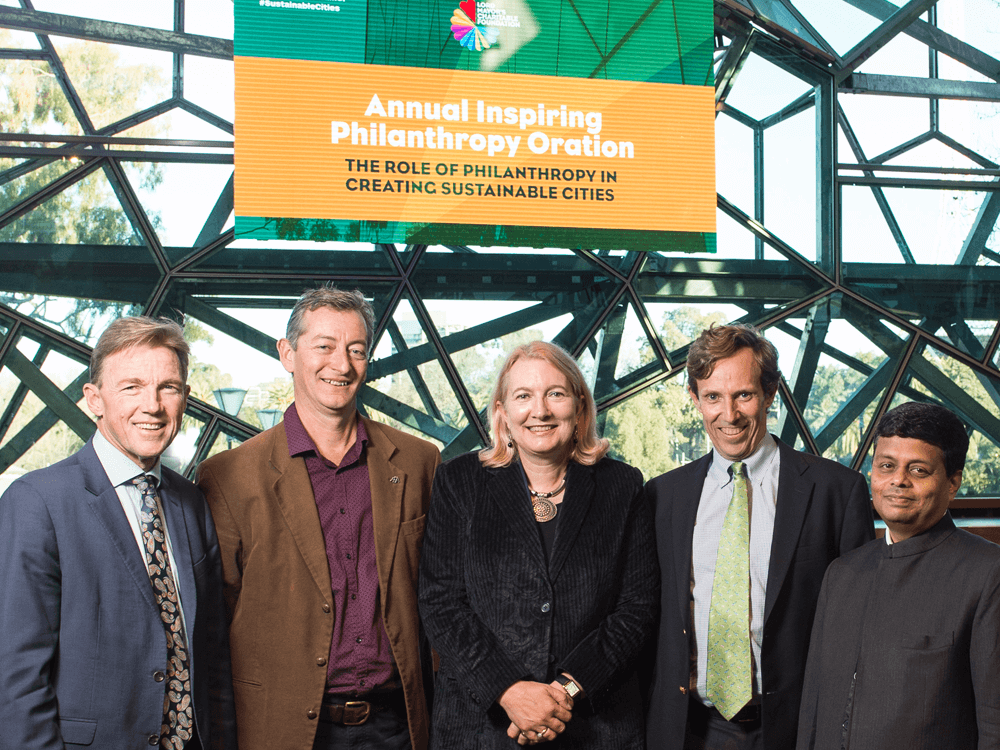Last week was a rare opportunity for me to learn from other foundations and cities about the concept of EcoCities.
The EcoCity World Summit was hosted by the Melbourne Sustainable Society Institute at The University of Melbourne and EcoCity Builders and brought together leaders, practitioners and researchers to share progress on the development of ecocities.
"Cities are at the forefront of practical approaches to climate change and its impacts. Melbourne has taken a lead in promoting sustainable projects and encouraging green infrastructure…Sustainability underpins all that we cherish in Melbourne, from liveability and social inclusion to economic prosperity. As we adapt to a changing climate and plan for population, we look forward to your ideas about great cities and global partnerships."
The Right Honourable the Lord Mayor of Melbourne Robert Doyle AC - EcoCity World Summit Welcome
It was inspiring to learn more about the sustainability work being undertaken by cities and businesses around the world. We took the opportunity to also learn from our colleagues in philanthropy.
We were delighted to welcome Michael Northrop, the Program Director, Sustainable Development Program at the Rockefeller Brothers Fund in New York, to speak at our annual Inspiring Philanthropy oration.
Each year, the Foundation holds an oration to learn about an area of our work that will help us increase our impact. For example, in the past, we have heard from the Skoll Foundation on impact investment and the Joseph Rowntree Foundation on the importance of research and policy alongside granting.

2017 Inspiring Philanthropy Oration: (L-R) Professor John Thwaites - Chair Monash Sustainable Development Institute, Michael Horstman - Award-winning science journalist, Catherine Brown - CEO Lord Mayor's Charitable Foundation, Michael Northrop - Program Director, Sustainable Development Rockefeller Brothers Fund and Aromar Revi - Director of the Indian Institute for Human Settlements.
Michael presented a very hopeful picture of the fast moving sustainability work being undertaken by cities around the world:
- Shenzen will have an electric vehicle (EV) fleet of 16,000 buses by 2019;
- 20% of all new cars in New York City will be EVs by 2025;
- Oslo is banning cars from the city centre in 2019.
Rockefeller Brothers Fund, in partnership with five other US foundations including the Kresge and Summit foundations (who were also in Melbourne), is supporting the Carbon Neutral Cities Alliance, which is working with 20 cities, including Melbourne, Sydney and Adelaide - to help them improve energy efficiency and reduce carbon emissions.